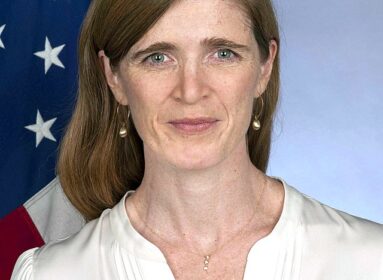An American Bride in Kabul tells her story
By Cindy Mindell
Dr. Phyllis Chesler is an emerita professor of Psychology and Women’s Studies at City University of New York. She is a bestselling author, a legendary feminist leader, a psychotherapist, and an expert courtroom witness. Chesler has published thousands of articles and, most recently, studies, about honor-related violence, including honor killings. She has published many classic works such as Women and Madness, Mothers on Trial: The Battle for Children and Custody, and Woman’s Inhumanity to Woman.
Chesler is co-founder of the Association for Women in Psychology (1969), the National Women’s Health Network (1974), and the International Committee for the Jerusalem-based Women of the Wall (1989).
Since 9/11, Chesler has focused on the rights of women, dissidents, and gays in the Islamic world; on antisemitism and the demonization of Israel; the psychology of terrorism; the nature of propaganda; and honor-related violence. She has testified for Muslim and ex-Muslim women who are seeking asylum or citizenship based on their credible belief that their families will honor kill them. In 2009, 2010, and 2012, Chesler published three pioneering academic studies on honor killings and an academic article about the burqa. All four studies appeared in Middle East Quarterly. Her work has been translated into many European languages and into Japanese, Chinese, Korean, and Hebrew.
Chesler has been published, interviewed, and reviewed in leading publications and media outlets throughout the world. She is profiled in many encyclopedias including Feminists Who Have Changed America, Jewish Women in America, and in the latest Encyclopedia Judaica.
Chesler is among the first three inductees into the new Motherhood Hall of Fame, to be honored at the Museum of Motherhood in New York on March 6. The Motherhood Hall of Fame Award recognizes individuals and organizations that exemplify excellence in the areas of scholarship, leadership, activism, education, community service, and business. Recipients have demonstrated a desire to improve the lives of women, mothers, and families.
In her fifteenth book, An American Bride in Kabul, which just won the 2013 National Jewish Book Award in the Biography, Autobiography, Memoir category, Chesler recounts the story of what led to her personal and professional journey that has lasted half a century. In 1961, 18 and in love, Chesler, a Jewish-American girl from Brooklyn, N.Y., embarked on a passionate love affair with a glamorous foreign student from Afghanistan, which led her to her destiny and nearly to her death in Kabul. Chesler draws upon personal diaries, correspondence, memories, and research in this vivid and eye-opening account of what she learned about central Asia and the nature of gender apartheid.
Chesler will make two Connecticut appearances: on Feb. 25 at Temple Sholom in Greenwich, and on April 8 at Mandell JCC of Greater Hartford in West Hartford.
Recently, she spoke with the Ledger about her latest book and her life’s work.
Q: Why did you decide to tell the story of An American Bride in Kabul now, more than 50 years on?
A: Once the al Aqsa Intifada began and antisemitism and the ideological war against the Jews became viral, and once 9/11 happened, it felt as if Afghanistan had followed me into the future and right into the West. The burqas that I encountered in Kabul so long ago are now here in the West – definitely in Europe, increasingly in America. Afghanistan has landed in the West and the West, including America, is still deployed in that cursed and ancient country. Bin Laden hatched his plot against America and against the “Zionist Crusaders” in a cave in Afghanistan, and just as I was once held hostage in Afghanistan, now, the entire civilian world, both Muslim and infidel, are being held hostage by bin Laden’s brand of jihadic terrorism. It was time for me to share what had happened to me, and what I have since learned and studied about the nature of Islamic, or Islamist, gender apartheid and religious apartheid.
Q: Why did you not choose to title your book A Jewish-American Bride in Kabul?
A: My story is first that of an American woman. At the time, I identified myself primarily as an intellectual and an adventurer, not primarily as a Jew. My Afghan husband was not religious and we never discussed Islam or Afghanistan. He deceived me totally, but he also deceived himself. Jewish women have lived for many centuries in the Arab and Muslim world. I had not; I was a thoroughly modern woman, American-style. I only learned that Jews once lived in Afghanistan when I was researching this book. I have a chapter on this subject and on the Jews of Islam in general. Although I lived in a harem together with my mother-in-law; although my father-in-law had three wives and 21 children; although I nearly died there, I think that this chapter is possibly the most shocking and explosive chapter of them all.
On a romantic note, like so many Jewish dreamers, perhaps I yearned for a mystical union between Isaac and Ishmael – and so, I married Ishmael.
Q: Since your time in Kabul, what do you think has changed — for better and worse — for women in Muslim societies, and what has remained the same?
A: Matters have gotten much worse for women, dissidents, independent thinkers, and homosexuals in Muslim countries. For nearly a century, Muslim women were unveiled, and went about naked-faced in Egypt, Jordan, Lebanon, Iraq, Turkey, the Maghreb – and in Afghanistan, too. Now, the face-veil (niqab) and burqa are back with a vengeance and with them we have forced child-marriage, arranged marriage to a first cousin, polygamy, Sharia-based prostitution, barbaric Sharia punishments for adultery or for rape victims, and honor-based violence, including honor killings, both in Muslim countries and among Muslim immigrants in the West. Honor killings are also perpetrated by Hindus but the practice is confined to India, and does not migrate along with Hindu immigrants to the West.
Q: What is most complex for Americans and other Westerners to understand about Muslim societies, and which leads some to romanticize these societies?
A: That not all cultures are the same or are equal, that some cultures are more barbaric, primitive, and dangerous to living beings than are others. Westerners do not seem to know that Islam has a long history of imperialism, colonialism, conversion via the sword, anti-Black racism, slavery, sex slavery, and gender and religious apartheid. Many Western intellectuals pride themselves on being multi-cultural relativists and are reluctant to take a principled, Enlightenment view of any culture that was once colonized by the West or is filled with people of color. In this, they make a devil’s bargain and desert our allies who are yearning to live freely, in certain Western ways.
Q: What does it mean to you to be inducted into the Motherhood Hall of Fame?
A: I have written four books about motherhood. When I began such work, I was almost alone. I published With Child. A Diary of Motherhood in 1979 and, again in 1998, with an Introduction by my then-18-year-old son; Mothers on Trial: The Battle for Children and Custody in 1986, and again in 2011, with eight new chapters; and Sacred Bond: The Legacy of Baby M in 1988.
The Museum of Motherhood is an utterly unique and visionary undertaking by one woman, Joy Rose; long may she be praised in the gates. She knows the value of my work and she is a very generous and joyful woman. This award means a lot to me – as does the National Jewish Book Award that An American Bride in Kabul has just received.
Q: What do you hope to impart to audiences on your visits to Connecticut?
A: I hope to talk about my book and the issues that it raises. But I will also talk about my work preparing affidavits in asylum cases for girls and women who have escaped being honor-killed by their families of origin.
An American Bride in Kabul with author Phyllis Chesler: Tuesday, Feb. 25, 7 p.m., Temple Sholom, 300 East Putnam Ave., Greenwich | RSVP: Alice Schoen, alice.schoen@templesholom.com / (203) 542-7165.
Tuesday, Apr. 8, 7:30 p.m., 21st Annual Mandell JCC Jewish Book Festival “One Book, One Jewish Hartford” event, Mandell JCC of Greater Hartford, 335 Bloomfield Ave., West Hartford. Cost: $10/person. Info/tickets: (860) 231-6316 / tickets@mandelljcc.org.
Comments? email cindym@jewishledger.com.







 Southern New England Jewish Ledger
Southern New England Jewish Ledger














